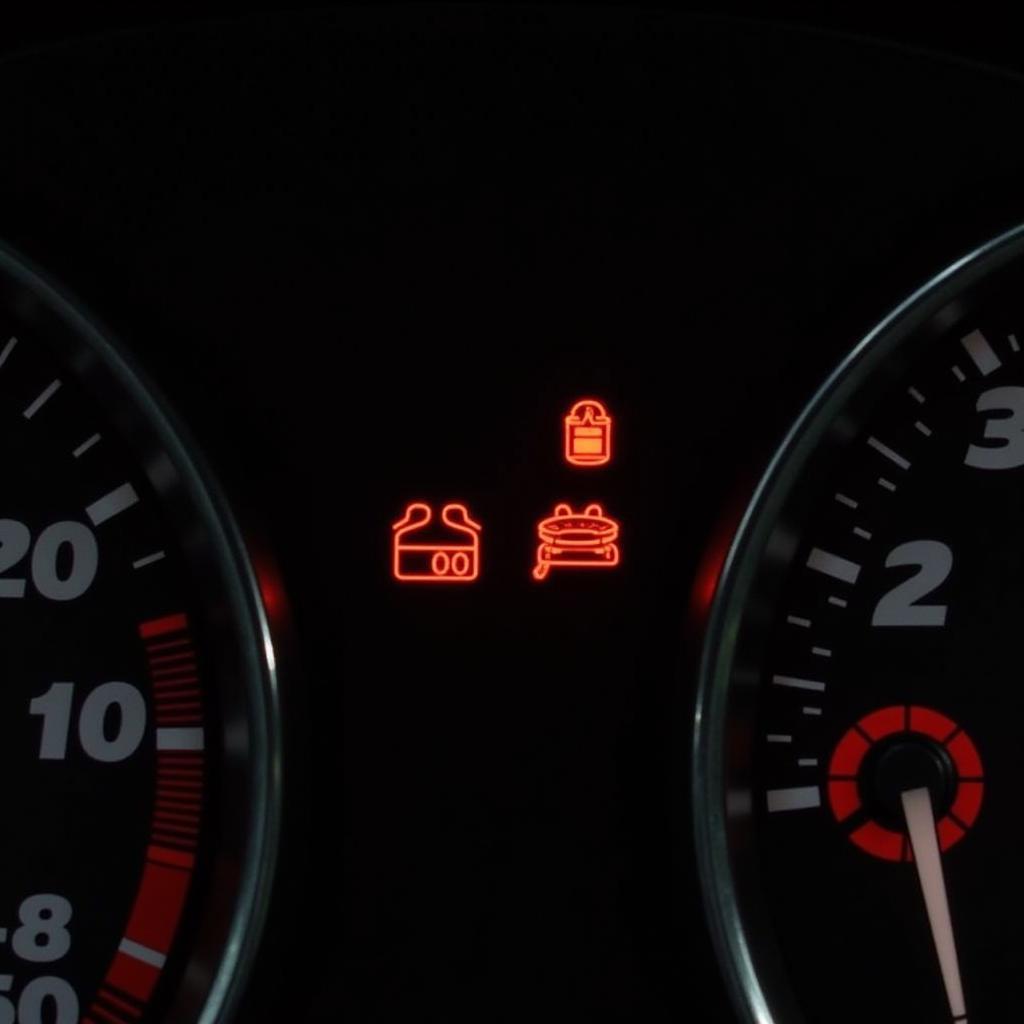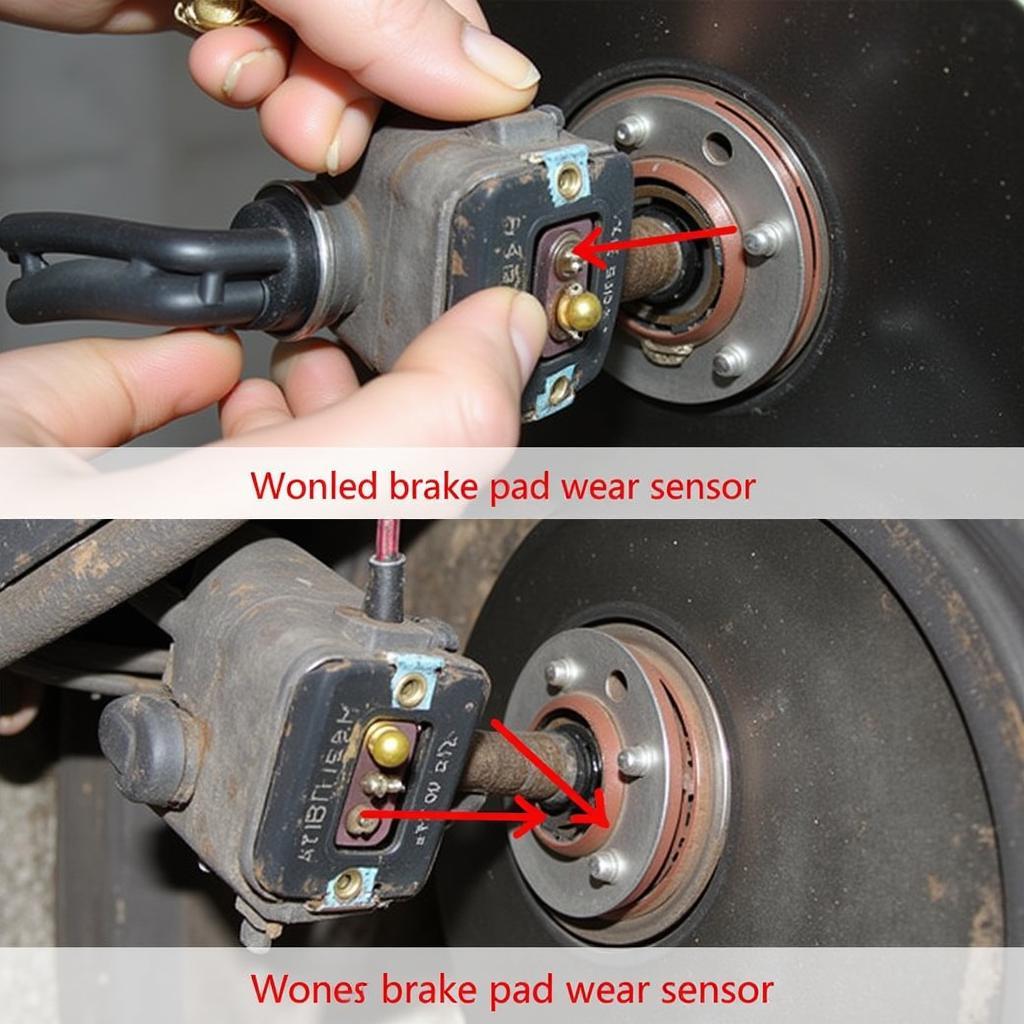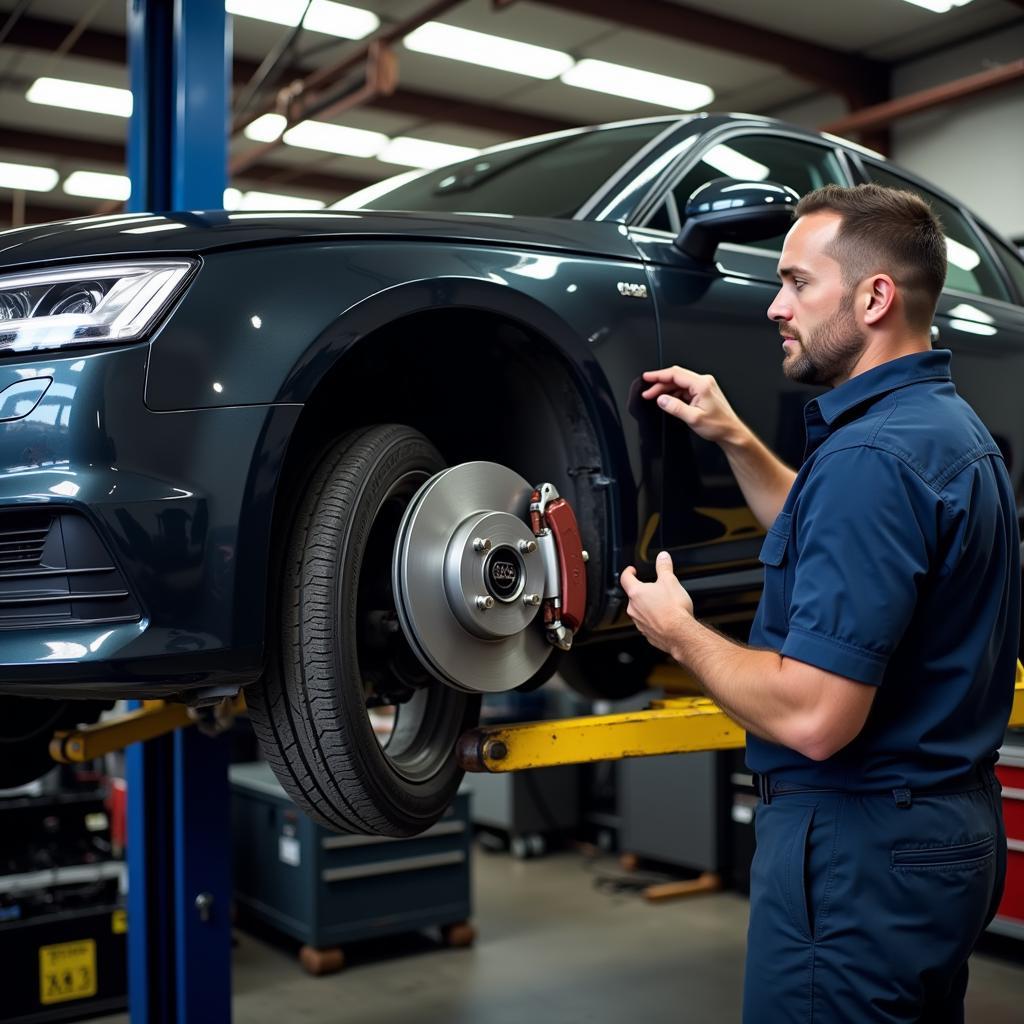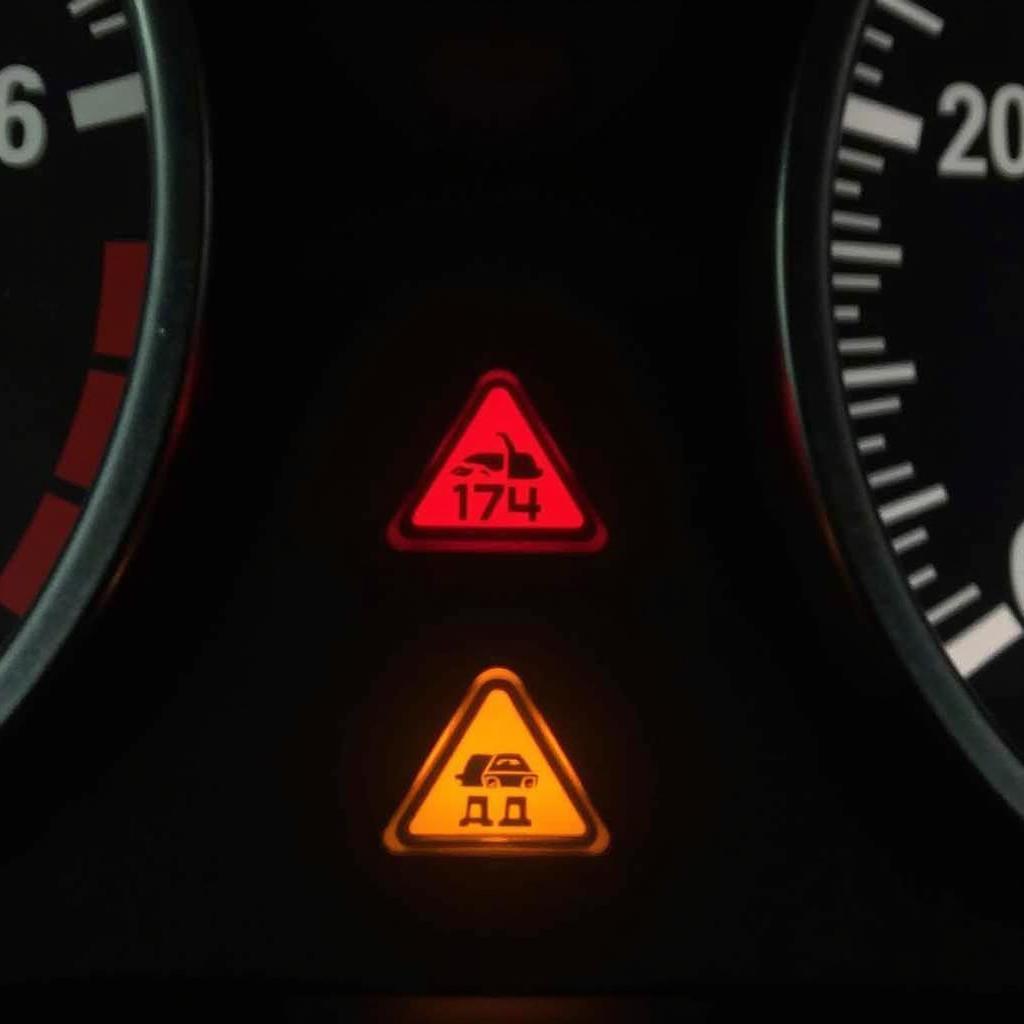The dreaded brake pad warning light on your Audi A4 dashboard – a sight that can send shivers down any driver’s spine. While it can signal a simple fix, it can also point to a more serious underlying issue with your braking system. This article provides a comprehensive guide to understanding the Audi A4 brake pad warning light, its common causes, and how to address them, whether through DIY solutions or professional help.
 Audi A4 dashboard illuminated with brake pad warning light
Audi A4 dashboard illuminated with brake pad warning light
What Triggers the Audi A4 Brake Pad Warning Light?
The brake pad warning light in your Audi A4 is part of a sophisticated electronic system designed to alert you of potential issues with your brakes. When the light illuminates, it typically indicates one of the following:
- Worn Brake Pads: The most common reason for the warning light is worn-down brake pads. Audi equips its vehicles with brake pad wear sensors that trigger the light when the pads reach a certain thickness.
- Worn Brake Pad Sensor: The brake pad sensor itself can malfunction or get damaged, causing the light to come on even if your brake pads are fine.
- Brake Fluid Level: Low brake fluid can trigger the brake pad warning light in some Audi A4 models. The brake fluid reservoir usually has a sensor that detects low fluid levels.
- Electrical Issues: Faulty wiring, a blown fuse, or a malfunctioning brake light switch can also lead to an illuminated brake pad warning light.
Diagnosing the Cause of the Warning Light
 Close-up of a worn brake pad wear sensor on an Audi A4
Close-up of a worn brake pad wear sensor on an Audi A4
Before you panic, it’s important to diagnose the root cause of the warning light:
- Check Your Brake Pads: If you’re comfortable with basic car maintenance, you can visually inspect your brake pads. A worn brake pad will have a significantly thinner friction material compared to a new one.
- Inspect Brake Fluid Level: Locate the brake fluid reservoir under the hood (refer to your owner’s manual for its exact location) and check the fluid level. If it’s below the minimum mark, top it up with the recommended brake fluid.
- Consult a Mechanic: If you’re unsure about the diagnosis or uncomfortable performing the checks yourself, it’s best to take your Audi A4 to a qualified mechanic specializing in Audi vehicles. They have the expertise and tools to accurately diagnose the issue and recommend the best course of action.
Addressing the Audi A4 Brake Pad Warning Light
2009 audi a4 brake pad warning light reset
The solution to your Audi A4’s brake pad warning light depends entirely on the underlying cause:
- Worn Brake Pads: If your inspection reveals worn-down brake pads, it’s crucial to replace them immediately. Driving with worn brake pads significantly compromises your safety and can damage your brake rotors, leading to more expensive repairs.
- Worn Brake Pad Sensor: A faulty brake pad sensor requires replacement. Luckily, it’s a relatively inexpensive part. However, it’s recommended to replace the brake pad sensor simultaneously with the brake pads to avoid future issues.
- Low Brake Fluid: If the brake fluid level is low, you’ll need to refill it and identify the cause of the leak. Ignoring a brake fluid leak can lead to brake failure, posing a severe safety risk.
- Electrical Issues: Diagnosing and fixing electrical issues require specialized knowledge and equipment. It’s best to leave this to a qualified mechanic to ensure the problem is correctly addressed.
audi a4 front brake pads warning light
“Ignoring your Audi A4’s brake pad warning light can lead to costly repairs and, more importantly, compromise your safety and that of others on the road,” warns Mark Schmidt, an experienced Audi mechanic at Schmidt Auto Services. “Regular brake inspections and timely maintenance are crucial for optimal braking performance and your peace of mind.”
Preventing Future Brake Pad Warning Lights
Taking proactive steps can help you avoid encountering the dreaded brake pad warning light again:
- Regular Brake Inspections: Schedule a brake inspection with a qualified mechanic every 15,000 miles or at least once a year, depending on your driving habits.
- Quality Brake Pads: Invest in high-quality brake pads that suit your driving style and conditions. While they may cost more upfront, they typically last longer and offer better performance.
- Mind Your Driving: Aggressive driving habits like hard braking and rapid acceleration put extra strain on your brakes, causing them to wear down faster. Adopt smoother driving techniques to extend your brake pad life.
 Mechanic inspecting the brakes of an Audi A4 on a lift
Mechanic inspecting the brakes of an Audi A4 on a lift
Conclusion
The brake pad warning light audi a4 serves as a crucial safety feature, alerting you to potential issues with your braking system. Understanding its meaning and addressing it promptly can prevent costly repairs and, more importantly, ensure your safety on the road.
By following the information provided in this guide, you can confidently diagnose the cause of the warning light and take the necessary steps to rectify the situation. Remember, when it comes to your Audi A4’s braking system, erring on the side of caution is always the safest approach.
FAQs
1. Can I drive my Audi A4 with the brake pad warning light on?
While you might be able to drive for a short distance, it’s strongly advised against it. Driving with worn brake pads compromises your braking ability and can lead to more severe and costly damage to your braking system.
2. How much does it cost to replace brake pads on an Audi A4?
The cost of brake pad replacement varies depending on factors like labor rates, the type of brake pads used, and if additional components need replacement. On average, expect to pay between $200 and $500.
3. How long do Audi A4 brake pads last?
The lifespan of brake pads varies widely depending on driving conditions, driving style, and brake pad quality. Generally, brake pads can last anywhere between 25,000 to 70,000 miles.
4. How often should I check my brake fluid?
It’s a good practice to check your brake fluid level at least once a month and top it up if necessary. Also, check for any signs of leaks around the brake fluid reservoir and brake lines.
5. Can I replace my Audi A4 brake pads myself?
If you possess moderate mechanical skills and are comfortable working on your car, you can replace the brake pads yourself. However, it’s recommended to consult your owner’s manual and follow the instructions carefully. If you are unsure, seeking professional help is always a safer choice.

